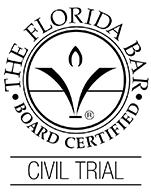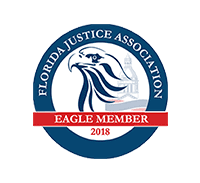ELEMENTS
A person will be liable for the injuries of the minor if the following elements are proven:
- The person had control of the residence;
- An open house party is permitted to take place at the residence;
- Alcoholic beverages or drugs are possessed or consumed at the residence by any minor;
- The person knows that an alcoholic beverage or drug is in the possession of or being consumed by a minor at the residence; and
- The person fails to take reasonable steps to prevent the possession or consumption of the alcoholic beverage or drug.[3]
Under this statute a person will be liable as long as they know that a minor is in possession of, or that a minor is consuming drugs or alcoholic beverages. This means that the person who owns the residence does not have to be the one to provide the drugs or alcohol to the minor.[4] Another important factor is that the minor does not have to consume the drugs or alcohol for the person in control of the residence to be liable, rather the minor only has to possess the drugs or alcohol.[5]
STATISTICS
According to the Florida Highway Safety and Motor Vehicles, in 2018 there was a total of 403,626 vehicle crashes.[6] This includes all ages, vehicle types, injuries, and impairments. Florida Highway Safety and Motor Vehicles also states that there were 63,688 motor vehicle crashes for all ages under 21; which included all vehicle types, injuries, and impairments.[7] Of the 63,688 motor vehicle crashes in that age group:
- 236 of them were related to alcohol;
- 53 of them were relates to drugs; and
- 21 of them were related to drugs and alcohol.[8]
According to the Centers for Disease Control and Prevention, alcohol is the most commonly used and abused drug among youths in the United States.[9] The CDC also states that people aged 12 to 21 drink 11% of all alcohol consumed in the United States, and more than 90% of this alcohol is consumed in the form of binge drinking.[10] In 2013, there were approximately 119,000 emergency room visits by persons aged 12 to 21 for injuries and other conditions linked to alcohol.[11]
According to the CDC and a Youth Risk Behavior Survey, high school students during the course of the survey:
- 30% drank some amount of alcohol;
- 14% binge drank;
- 6% drove after drinking alcohol;
- 17% rode with a driver who had been drinking alcohol;
- 20 percent used marijuana; and
- 14% took prescription pain medicine without a doctor’s prescription.
CRIMINAL PENALTIES
There are criminal penalties if minors are found to be drinking alcohol or taking drugs at an open house party. For the first offense, if there are no physical injuries, it will be considered a second-degree misdemeanor, which is punishable up to 60 days in jail, 6 months of probation and/or a $500.[12] If there is any subsequent violation, it will be considered a first-degree misdemeanor and is punishable up to one year in jail, 12 months of probation, and/or a $1,000 fine. If there is a violation of the open house party statute and either the party or a minor who was present at the party causes or contributed to the death or bodily injury of another, the offense is considered a first-degree misdemeanor.
CIVIL LIABILITY
The open house party statute under Florida law imposes criminal penalties if it is violated.[13] In addition to the criminal penalties, a person could be subject to civil liability under a negligence per se theory of liability. Negligence per se can make it easier for the victim to recover damages. If negligence per se is applicable, then the jury no longer has to consider whether or not the defendant’s actions were reasonable or not. This means that if negligence per se applies and the defendant violated an applicable statute, rule, or regulation, then the defendant is automatically deemed to have acted unreasonable. In order for negligence per se to be applicable, the injured party must show:
- A statute was violated;
- The statute was designed to protect a class of persons from a particular injury;
- The injured party was in the class of persons that the statute aims to protect; and
- The defendant’s actions caused the kind of injury that the statute was designed to protect against.[14]
There is case law stating that the open house party statute is “clearly designed to protect minors from the harm that could result from the consumption of alcohol or drugs by those who are too immature to appreciate the potential consequences.”[15] The case goes on to say that “a cause of action in negligence per se is created when a penal statute is designed to protect a class of persons, of which the plaintiff is a member against a particular type of harm.”[16] The Court went on to further state that it was the legislature’s intent to impose a duty of care on social hosts and create a civil cause of action when the open house party statute was violated.[17]
CONCLUSION
If you have control of a residence, you have to take reasonable step to prevent the possession or consumption of alcohol or drugs. This means that if you are having friends over, and some are not of the legal drinking age, you have a duty to prevent the minors from consuming alcohol. If you are found to violate the open house party statute due to minors consuming or possessing drugs or alcohol at a residence you control, you could be charge with a second-degree misdemeanor for your first offense. If it is your second offense, or if someone is injured due to your violation, then you could be charged with a first-degree misdemeanor. In addition to the criminal penalties, you could be subject to civil liability for the bodily injuries sustained due to the violation of the open house party.
Author:
[1] Fl. Stat. Sect. 856.015(5) (2019).
[2] Fl. Stat. Sect. 856.015(1)(e) (2019).
[3] Fl. Stat. Sect. 856.015(2) (2019).
[4] Id.
[5] Id.
[6] https://www.flhsmv.gov/pdf/crashreports/crash_facts_2018.pdf
[7] Id.
[8] Id.
[9] citing U.S. Department of Health and Human Services (HHS), Office of the Surgeon General. Facing Addiction in America: The Surgeon General’s Report on Alcohol, Drugs, and Health.
[10] citing Office of Juvenile Justice and Delinquency Prevention. Drinking in America: Myths, Realities, and Prevention Policy.
[11] citing Naeger, S. Emergency department visits involving underage alcohol use: 2010 to 2013.
[12] Fl. Stat. Sect. 856.015(4) (2019).
[13] Fl. Stat. Sect. 856.015(5) (2019).
[14] Golden Shoreline Ltd. P’Ship v. McGowan, 787 So.2d 109, 111 (Fla. 2d DCA 2001).
[15] Trainor v. Estate of Hansen, 740 So.2d 1201, 1202 (Fla. 2d DCA 1999).
[16] Id.
[17] Id.


![cftla-member[2]](https://www.1800askdave.com/wp-content/uploads/2022/03/cftla-member2.png)
![cftla-member[3]](https://www.1800askdave.com/wp-content/uploads/2022/03/cftla-member3.png)










